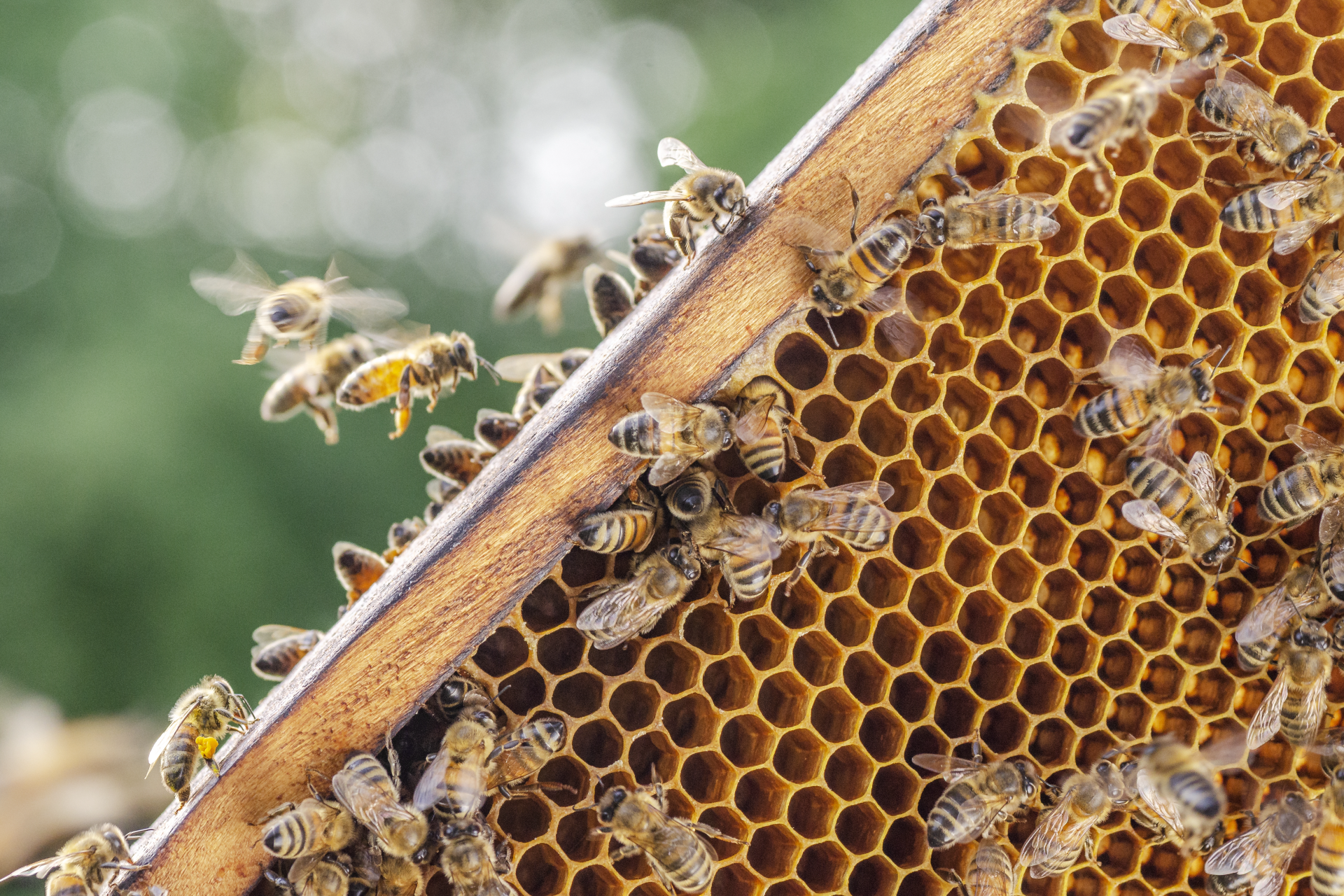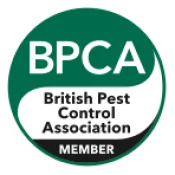Honeybee FAQs
Most frequent questions and answers
What is iX5’s Honeybee service?
Our honeybee service focuses on the live collection of swarms and removal of established colonies with live extractions. We rehome bees in our apiary in Northamptonshire, where they’re housed in traditional wooden hives in a protected, natural environment.
Do you kill bees?
No – we do not exterminate honeybees. They’re not protected species, but with 25% of bee types endangered, and honeybees being essential pollinators, our priority is relocation unless eradication is absolutely unavoidable.
Where are the relocated bees housed?
Bees are placed in our secure quarantine apiary between Ravensthorpe, Long Buckby and West Haddon—surrounded by natural forage and floral sources, including gardens and farms, ensuring their well‑being. They remain in quarantine for a minimum of six weeks before they are moved to a permanent home.
What if the bees are in the walls or roof of my property?
We’ll conduct a thorough survey to establish the best access point. Cut‑outs can involve building works and scaffolding, and planning may take a few weeks. A written proposal and quote will be provided before any work begins.
What should I do if I spot a honeybee swarm?
Keep your distance—it’s best to call a professional swarm collector straight away. You can find a local swarm collector on the British Beekeepers Association website map . Do not just leave the swarm to move on as it may move into your building or a neighbouring property, where it is likely to be difficult and costly to remove .
When can you visit?
We offer appointments seven days a week, including evenings and weekends, at no extra charge
Are honeybees protected by law in the UK?
While honeybees aren’t classified as legally protected, their environmental value is immense. At iX5 Pest Control, we choose humane relocation whenever possible, as part of our commitment to sustainability and biodiversity.
Will I need to repair my property after a bee removal?
If we need to cut into walls, roofs or soffits to access a colony, repairs may be required afterward. We’ll always discuss options and costs upfront and we offer a full removal service to include reinstatement. Equally, if you have your own preferred tradespeople, we can work with them.
Do you offer follow-up visits?
Yes – follow-up visits can be arranged to monitor for any returning bees or to complete proofing works where agreed. We also offer guidance on preventive measures.
Is it safe to be near a swarm?
Generally yes – swarming honeybees are not usually aggressive, as they’re focused on finding a new home. However, it’s safest to keep pets and people away and call a beekeeper promptly.
What types of buildings do you work on?
We’ve removed colonies from residential homes, listed buildings, chimneys, churches, cavity walls and commercial premises. Each case is assessed individually for safe access.
How do I know if I have a honeybee infestation?
Signs include constant bee activity in one spot (e.g. air bricks, soffits or chimneys), a low humming noise in walls, and potential honey stains indoors. If you suspect an infestation, contact us for a professional assessment.
Can bees damage my home?
Generally bees do not cause any direct structural damage in buildings. However, incidental damage can be caused, such as damp staining on plaster when bees are evaporating water off the nectar, to form honey. In prolonged periods of high ambient temperature, comb can collapse, causing honey to seep out, or a collapse of comb with honey and bees down a chimney flue.
What’s the best time of year for honeybee removal?
Spring and summer are peak swarm seasons, ideal for live relocation. However, we can remove established colonies earlier in the year with the right planning and safety measures. Spring is best as the colony size and food stores will be at their lowest. Late summer removals are often more challenging due to the amount of food stores and factors like wasp activity.
Are your bee removal methods eco-friendly?
Yes – we use non-toxic, sustainable practices, and never exterminate honeybees. All relocated colonies are cared for in our countryside apiary.
Do you offer commercial bee removal services?
Absolutely. We work with churches, schools, offices, farms, landlords, local councils and many other organisations to provide bee removal from commercial properties.
Why live relocation instead of extermination?
Honeybees are vital to pollination. Relocating them preserves their environmental role. We have professional expertise and equipment to safely extract colonies without causing them harm.
What does live removal involve?
For a recent swarm that has arrived in a building (within 24–36 hours), we might apply non‑intrusive methods to encourage them to move on. For colonies that are older, we perform a ‘cut‑out’, which involves opening up the structure to remove the bees and comb before proofing and sealing the area.
Can I purchase honey from iX5 Pest Control?
Yes! We only harvest the surplus honey, ensuring sufficient food remains for the bees. When in stock, honey is available during service visits, or you can pre-order for collection from Lodge Farm, Northampton.
Do you deal with bumble bees?
Yes. We usually advise leaving bumble bees alone, as nests are short‑lived. If relocation is needed and the nest accessible, we can assist.
How much does honey bee removal cost?
A site survey for honey bee removal costs £198 (inc. VAT) for domestic premises. Fees for the full cut‑out will depend on the complexity and extent of works required
Which areas do you service?
We’re available for domestic and commercial properties across Northamptonshire and neighbouring towns and villages: Northampton, Daventry, Kettering, Wellingborough, Towcester, Brackley, Corby, Market Harborough, Olney, Rugby and Milton Keynes.
How long does the removal process take?
Swarm collection can usually be completed in under an hour, but we need to return at dusk to collect the swarm, otherwise removing them in the day time will result in lots of bees being left behind. Full colony extractions from buildings may take a full day or more, depending on accessibility and the size of the hive.
Can bees return after they’ve been removed?
We take care to remove all comb and scent markers, then seal entry points to discourage reinfestation. However, if gaps remain unsealed, scout bees may return in future seasons. If we are undertaking the reinstatement works we will ensure bees cannot occupy the same space in future.
What happens to the brood (eggs and larvae) during removal?
We take great care to preserve as much of the brood as possible, transferring it to frames in a hive box so the colony can rebuild in their new home with minimal disruption.
Do you offer emergency bee removal?
In many cases, yes. We understand that swarms can appear suddenly and may pose a risk in sensitive locations. Call us directly for urgent assistance and we’ll advise on next steps.
Can I watch the bee removal process?
You’re welcome to observe from a safe distance – it’s a fascinating process! However, this is at your own risk. We’ll always prioritise safety for you, your household, and the bees.
What’s the difference between a swarm and a nest?
A swarm is a temporary cloud of flying bees or a cluster of bees resting while scouting for a new home, typically seen hanging on a tree or wall. A nest (or colony) is where bees have established their hive, often inside a wall, roof or chimney.
Is bee removal covered by home insurance?
It depends on your policy. Some insurers cover pest control and some are known to cover at least an element of the cost of a bee removal. Our written proposal will help with any potential insurance claim.
Do you remove wasps or other insects too?
Yes – we’re a full-service pest control company. While bees are relocated live, we also handle wasps, hornets, ants, cluster flies and other seasonal insects using safe and effective treatments.
How can I prevent bees from nesting in my home again?
We recommend sealing all holes and gaps around soffits, bricks, vents and chimneys. We can advise on preventative proofing after removal to reduce the risk of future swarms settling.
Are your team members trained beekeepers?
Yes – we’re qualified pest control specialists and experienced beekeepers. This unique skillset allows us to safely handle bees with care and relocate them responsibly.











